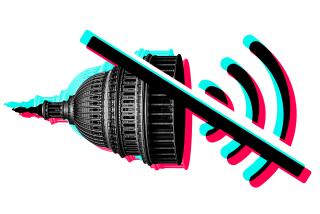Rap lyrics decoded, legally
Trying to decode rap lyrics, as rich as they often are in regional slang and obscure references, can be like watching a foreign-language movie without subtitles. For instance, on “A Queens Story,” what does Nas mean when he raps, “You be starving in Kew Gardens/Bolognas and milk from a small carton”? That’s where the Rap Genius website comes in. Users of the site not only have transcribed and uploaded thousands of raps, they annotated them with explanations. For instance, three Rap Genius contributors explained that Kew Gardens is the site of the Queens Criminal Court, and bologna sandwiches with a carton of milk is a typical meal served in jail.
Last week, however, the National Music Publishers Assn. — a trade association for the companies that own the copyrights to musical compositions and lyrics — sent Rap Genius and 49 other websites takedown notices demanding that they remove some of the lyrics they’d posted. The group said that if the sites didn’t obtain licenses for all of the lyrics they’d posted, it would sue them for copyright infringement.
The publishers’ epic rap battle with Rap Genius appears to have ended almost as quickly as it began, however. The site revealed Thursday that it had already struck a deal with the largest of the publishers, Sony/ATV Music Publishing, before the association sent its takedown notice. And on Monday, the association announced that it was in talks with the site and putting its legal fight on hold.
Music publishers have been trying to crack down on unlicensed lyrics sites for years, and they’ve persuaded at least 30 online sources of lyrics to strike deals. Typically, lyrics sites do little more than offer a searchable database of song lyrics, yet the publishers association contends that they can generate a substantial amount of revenue by running advertisements. The unlicensed sites draw viewers away from the licensed ones, cutting the royalties the latter pay to copyright holders.
Rap Genius is a much more substantial site — so much so that some artists contribute annotations of their own — and the annotated lyrics arguably are the sort of commentary favored under the fair-use provisions of copyright law. In addition, because the lyrics are uploaded by users, Rap Genius could conceivably claim that any liability would rest with those users, not the site. But rather than waging a long and costly battle in court, the two sides seem to have wisely recognized their mutual interests. Rap Genius can’t maintain a comprehensive site without the cooperation of the copyright owners, and music publishers need the enthusiasm and demand for their artists’ work that the site promotes. That’s a balance Rap Genius and copyright holders should keep in mind as the site expands into more genres of user-annotated works.
More to Read
A cure for the common opinion
Get thought-provoking perspectives with our weekly newsletter.
You may occasionally receive promotional content from the Los Angeles Times.






